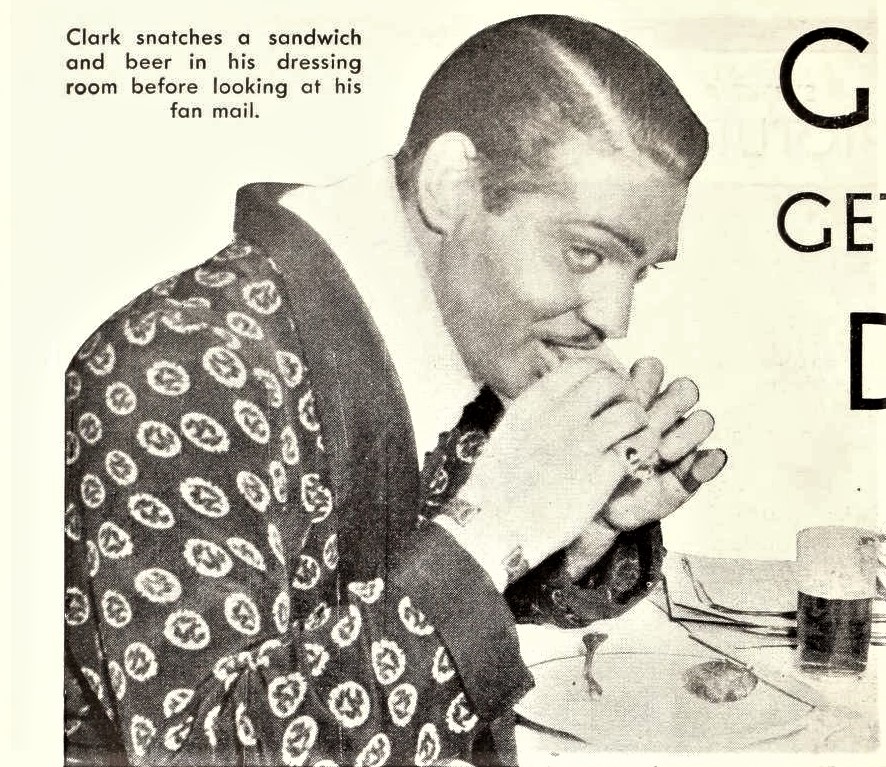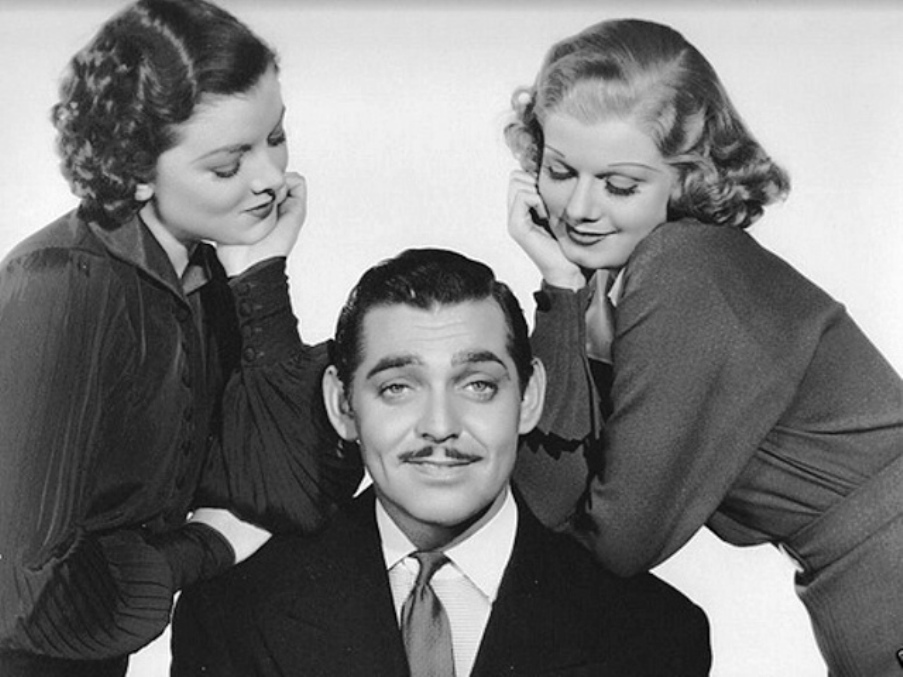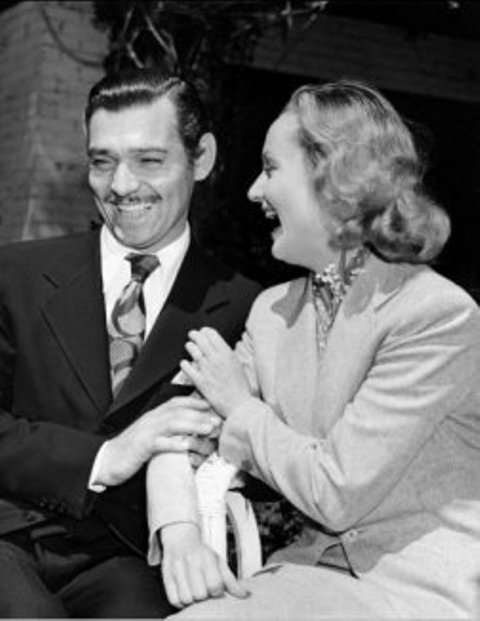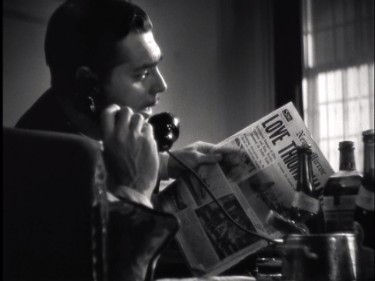
{New Article} 1934: Gable Gets a New Deal

“Clark Gable Gets a New Deal” is this writer’s way of saying that he is no longer second fiddle to MGM’s stable of female stars and can charge ahead on his own. He’s got an “optimistic grip of his career” now, it seems.
After playing subordinate roles for two years, working four without a vacation, and being seriously ill for months, Clark gets a new deal, a new kind of role, a new contract! And a vacation in New York with a fresh, optimistic lease on life, as well as a firmer grip on his career. Everyone is pleased about it, if one is to judge by the proud but restless press agents who prowled around the publicity office where he was being interviewed; the girls who were described as going gaga over him; the crowds who milled about him wherever he went; the fit and smiling person of Gable himself; and his extraordinary week of personal appearances at the Capitol Theater where he was a greater success than Robert Montgomery, Lionel Barrymore, and Ramon Navarro.
He deserves a new deal if ever an actor did. And should anyone ask you, “Can you name a star who is not a disillusionment?” be sure to report snappily, “Clark Gable!”
That’s the correct reply, all right, for not even a schoolgirl with all sorts of glamorous notions about picture heroes would be disappointed in him.
Yet while talking with him, if one was not positive that his is Clark Gable, whose popularity has been sensationally hailed as “the greatest since Valentino,” it would be impossible to believe it from his easy, friendly manner. You would naturally expect him to bear some small, conscious reflection of all that adulation, but he doesn’t show a trace.
On the contrary, he was almost naively enthusiastic about his new role in the screen version of “Men in White.” That is, if it is permissible to use the word “naive” instead of “boyish” in regard to a tall, well set-up and dashing he-man whose charm falls somewhere between the two. Anyway, it is a good stellar role in a hospital setting.
Clark acknowledged it was the hardest he’s had, but as he leaned back comfortably in a desk chair and pulled out a lower drawer for a foot rest, he confessed, “I enjoyed that role more than any I’ve played in a long time.”
These early articles are indeed fluffy, but one thing that is consistent through them as well as into the 1950’s when he was interviewed by legitimate newspapers and more straightforward publications—Clark was a real guy, humble and down to earth.
Here’s an actor whose roles are real to him. Now that his professional standing is being placed on a stronger basis, he doesn’t mind admitting that the subordination he’s suffered has had its advantages, even though he did play little more than foil for the feminine stars. At least it has given audiences an opportunity to see him in a new light—as an actor, instead of a “great lover.”
At the suggestion that he ever was the latter, he grew vehement—genially vehement, it’s true, but vehement nonetheless. “Oh God, no! I’m not a great lover! I never wanted to be known as a great lover. I don’t know where they got the idea. I think it was just a publicity stunt. When they started all that about me, I was afraid the flare-up was bound to go down.”
Mr. Gable likes to play heavies. He asked casually, “Did you see a picture called ‘Red Dust?’”
He liked that role, also the one in “A Free Soul.” But can you imagine any other Hollywood actor referring to a film in which he played as “a picture” instead of “my picture”? Or, as Gable did in discussing his last production, saying “we” tried to show this, or “we” tried to do that, instead of using the well-know “I”?
That ingratiating modesty isn’t the only trait that sets him apart from the ordinary actor. Before he arrived for the interview, one of the publicity men was quick to denounce Alexander Kirkland’s stage interpretation of the lead in “Men in White” as a hammy performance. Later it was suggested to Clark that he would be more interesting in the part. And do you think he agreed and expanded under the idea, as a great many of our movie males would have done? Not Clark! He merely smiled and went on with what he was saying.
That’s tact for you! And he exhibited more of it in his reaction to the question, “What actress do you admire most?” He gave a wide smile—you know, the devastating one with the dimples—and said he couldn’t answer that because if he named one, the others would be offended.
You can read the article in its entirety in The Article Archive.
(Article #21 posted in 2019)


